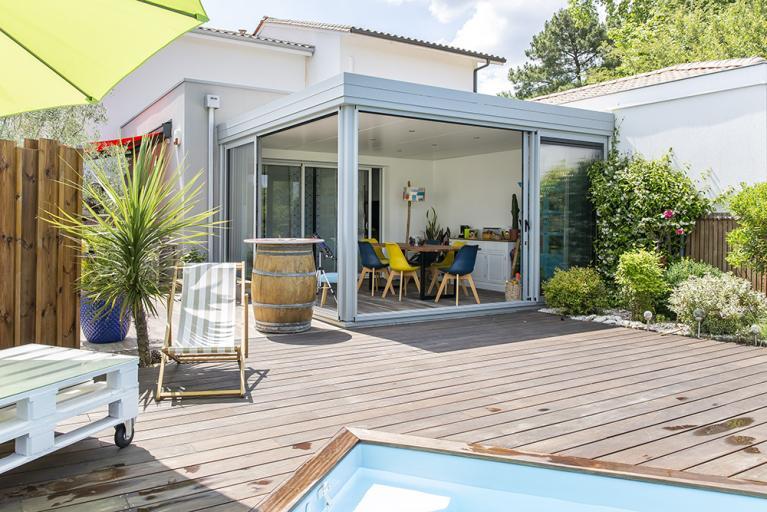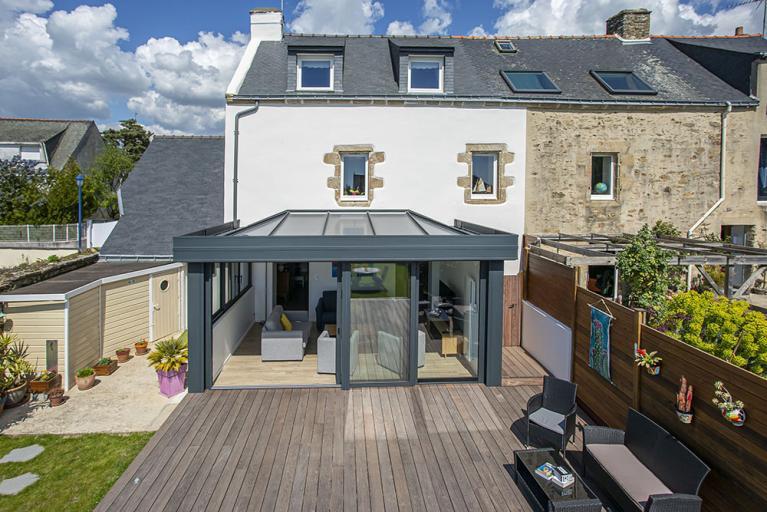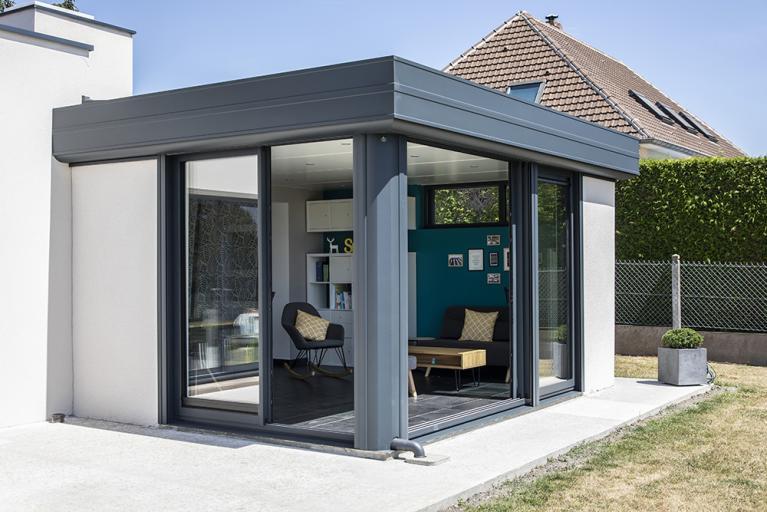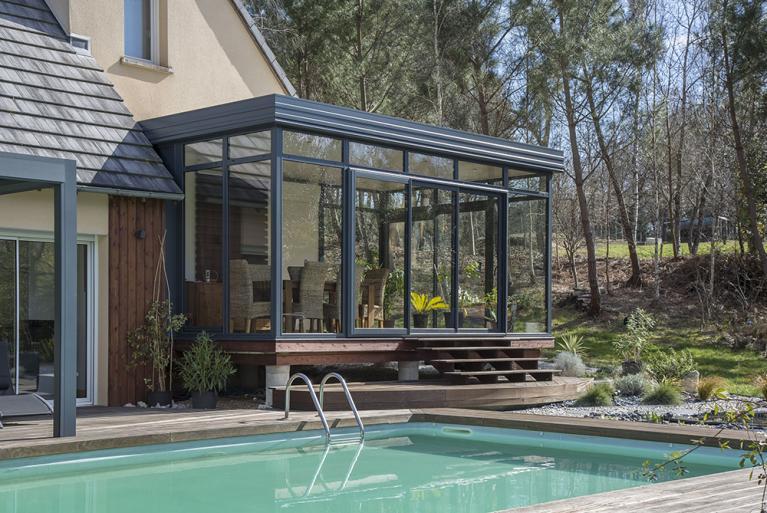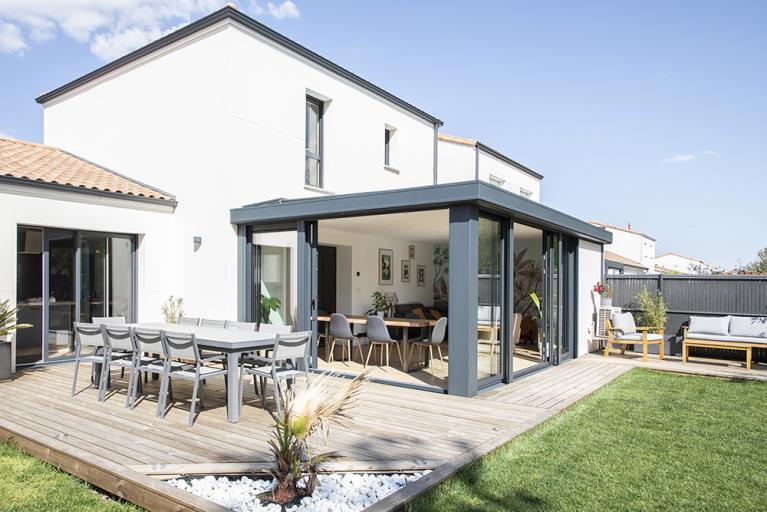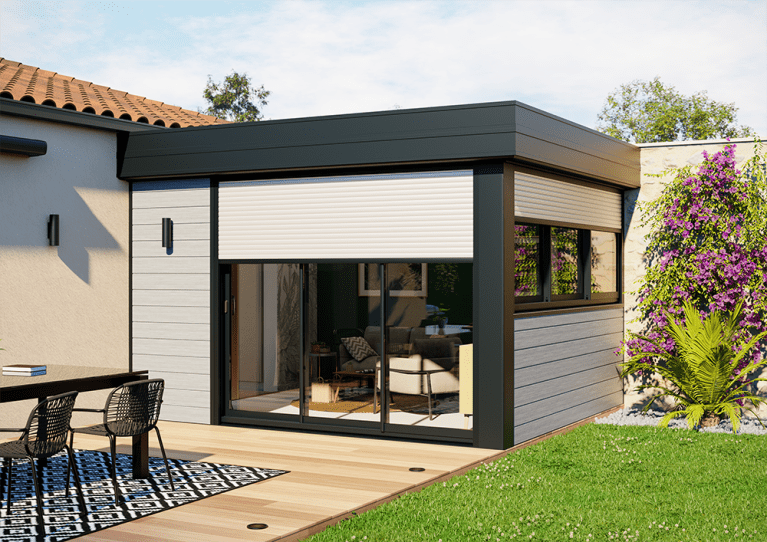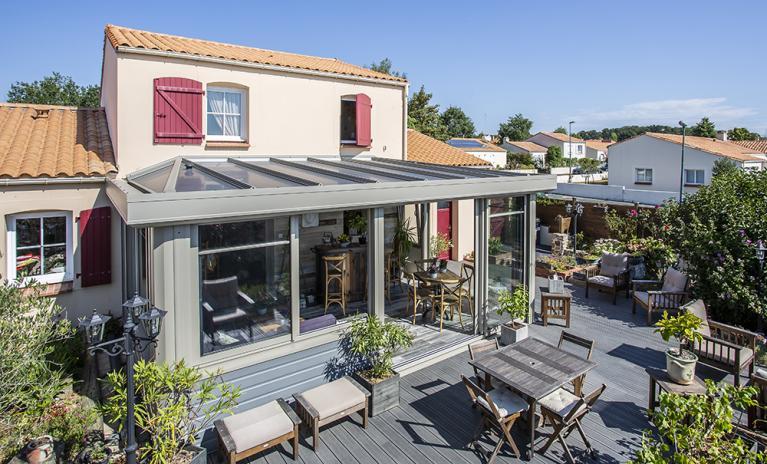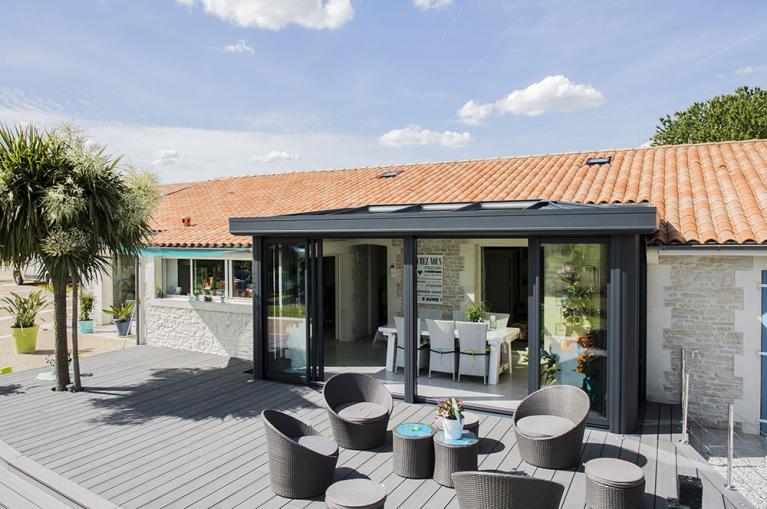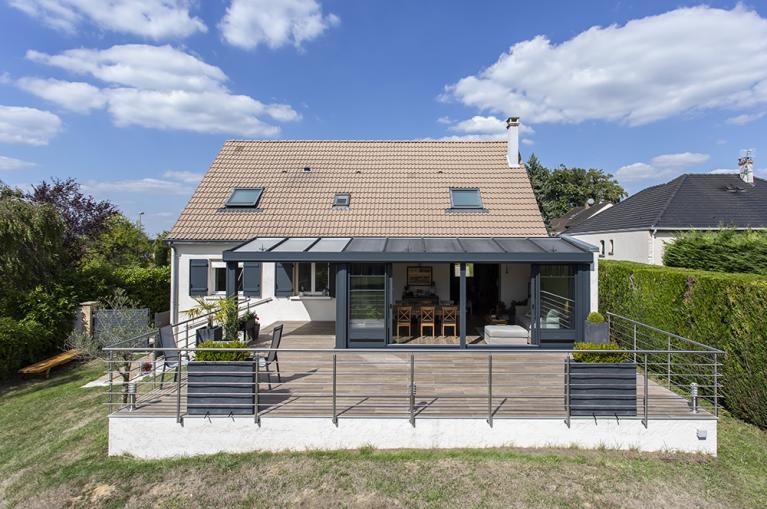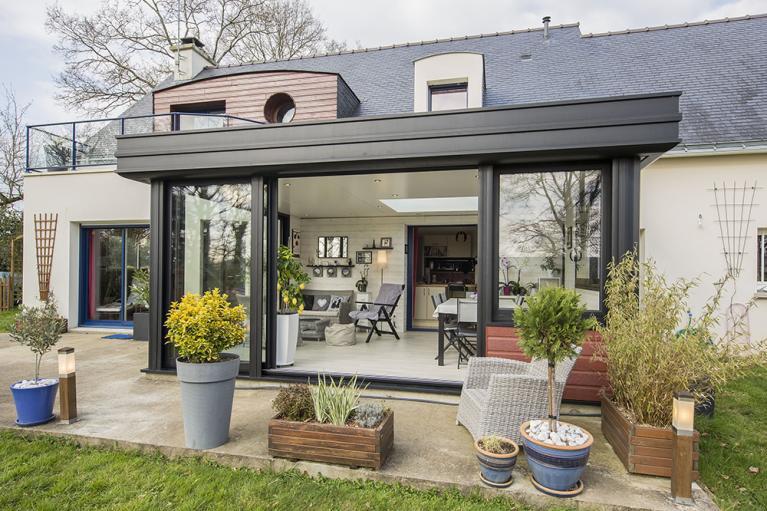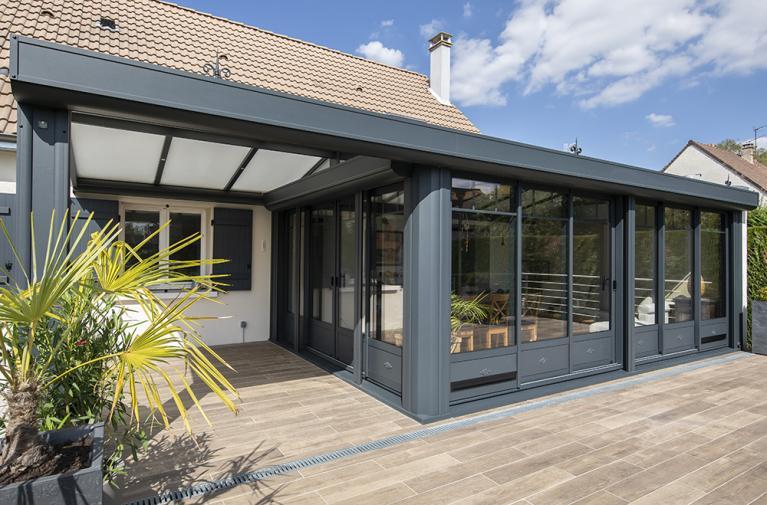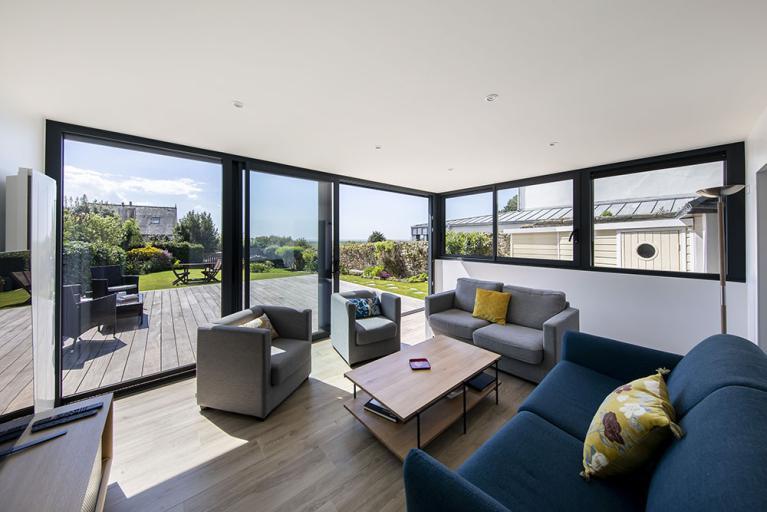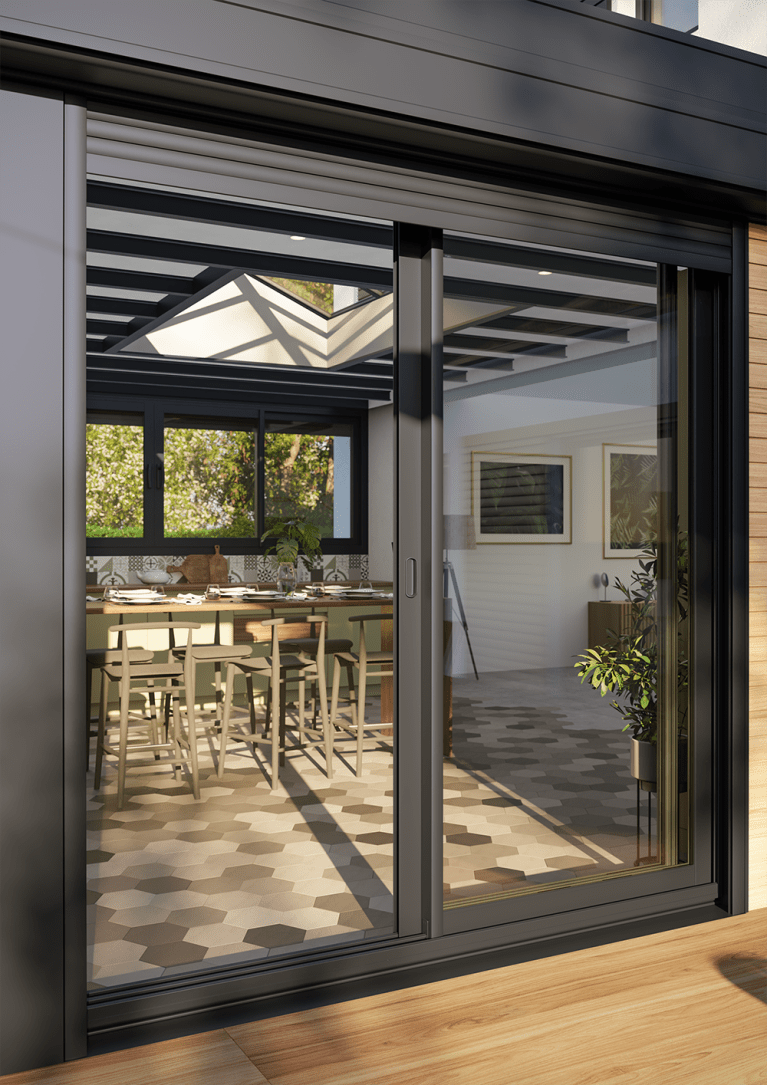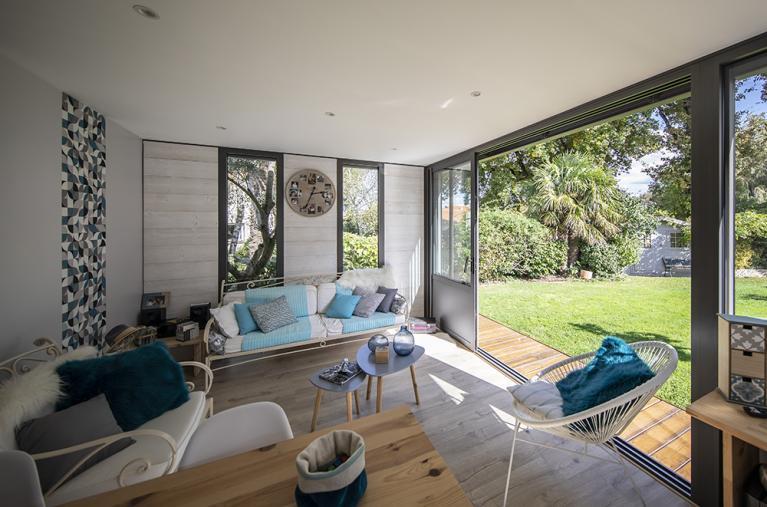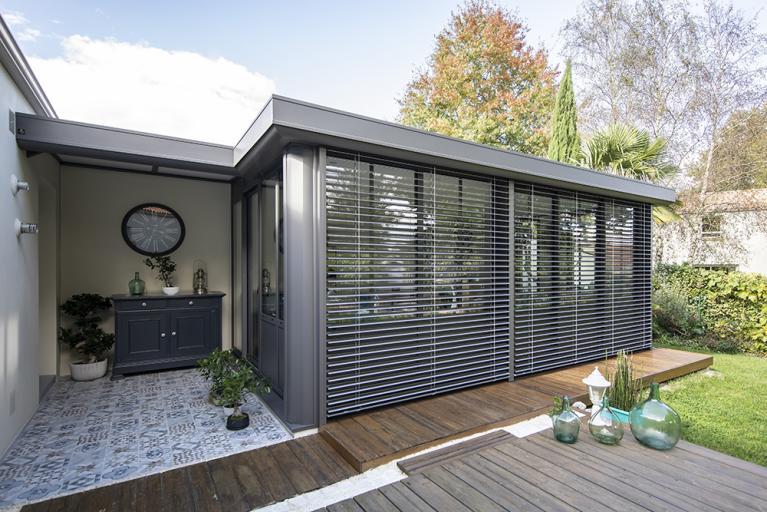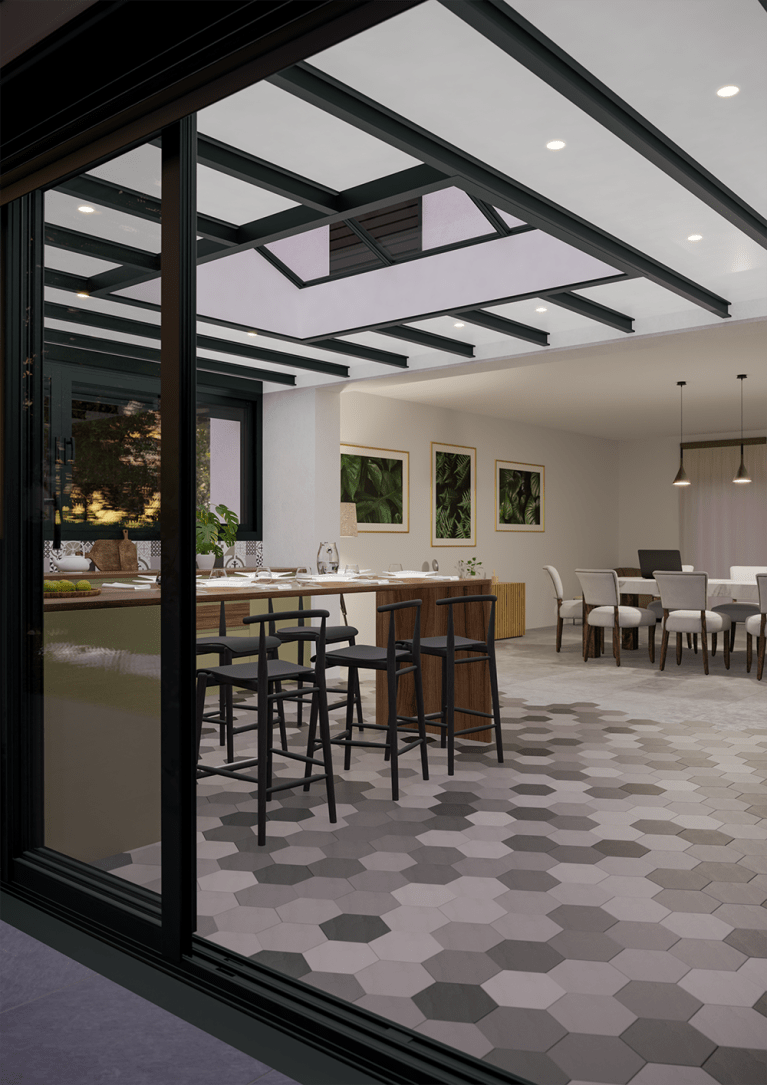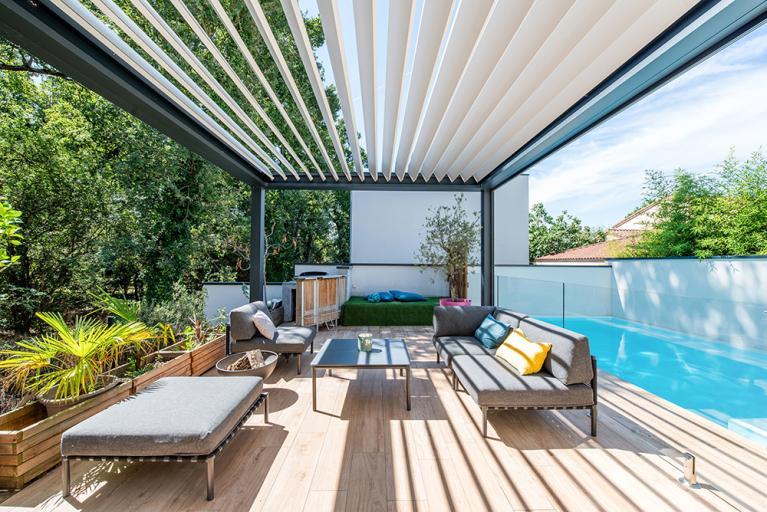Quotation for extension and enlargement of house
An extension to your house is the dream of additional space, better organisation and, very often, an increase in the value of your property. In short, it is a major project that requires careful planning and a thorough understanding of the costs involved! Because how can this wish be realised without exceeding the budget? Whether you want to create a covered outdoor space, enlarge your living space or add a new bedroom, obtaining an accurate quotation is essential.
What is the average cost of an extension to a house?
Perhaps you are curious to know how much the enlargement of a house costs? The truth is that prices can vary quite significantly and depend on several factors.
The region where you live plays a crucial role, as the cost of materials and labour can vary from one place to another. In addition, the materials you choose for your extension project have a direct impact on the final price. Opting for high-quality materials or environmentally friendly solutions can increase the cost, but also the value and durability of your extension. The complexity of your project is another determining factor. A simple extension, such as adding a new bedroom, will be less expensive than a complex project requiring significant structural modifications.
On average, a basic estimate for a home extension can start at around €1,700 to €2,000 per square metre. However, this price may increase for more complex projects or if you choose high-end finishes or additional equipment. It is also important to note that these costs are just estimates and may vary depending on changes in the price of materials and labour. To quickly estimate your project, request a transparent and free quotation.
See the prices of our house extensions
What information does a house extension quotation contain?
The main advantage of the quotation is that it methodically details the stages of your enlargement project, from start (A) to finish (Z), before breaking down each task with meticulous precision. The associated section is designed to be sufficiently detailed so that you can have a clear and complete understanding of all the elements included in your purchase. It is important to include in this description the materials that will be used, the labour required to carry out the tasks and any finishing stages that will give the project its final character. This detailed approach ensures that all stakeholders have a clear vision of the project's progress and expectations. Here are some examples of items that can be included in a house extension quotation, on a case-by-case basis.
- Cost of site preparation: before starting construction or development work, it is essential to prepare the site properly. This essential stage includes several tasks such as brush cutting, which consists of clearing the site of undergrowth and other unwanted vegetation, as well as levelling the ground. Levelling is often achieved through earthworks, which create a flat, stable surface, essential for the solidity and safety of any future construction or development project.
- Construction of the foundations of your extension: as with any construction, this stage is crucial. Depending on the type of extension, it may involve digging trenches, laying foundation footings and pouring reinforced concrete.
- Prices for electrical or plumbing installation in your conservatory or extension: electrical and plumbing work is carried out in accordance with current standards. This includes the installation of new electrical lines, sockets, switches, as well as water and drainage pipes.
- The cost of installing the various floor coverings you have chosen is a crucial element to consider: before installation, the floors must be carefully prepared, which may include levelling and cleaning. Then, finishes such as tiles, parquet or any other type of covering are meticulously installed, thus ensuring not only a pleasant aesthetic but also long-term durability.
- The total price of the finishes requested: this may include specific equipment or accessories related to the thermal comfort of your extension, its lighting or even its home automation
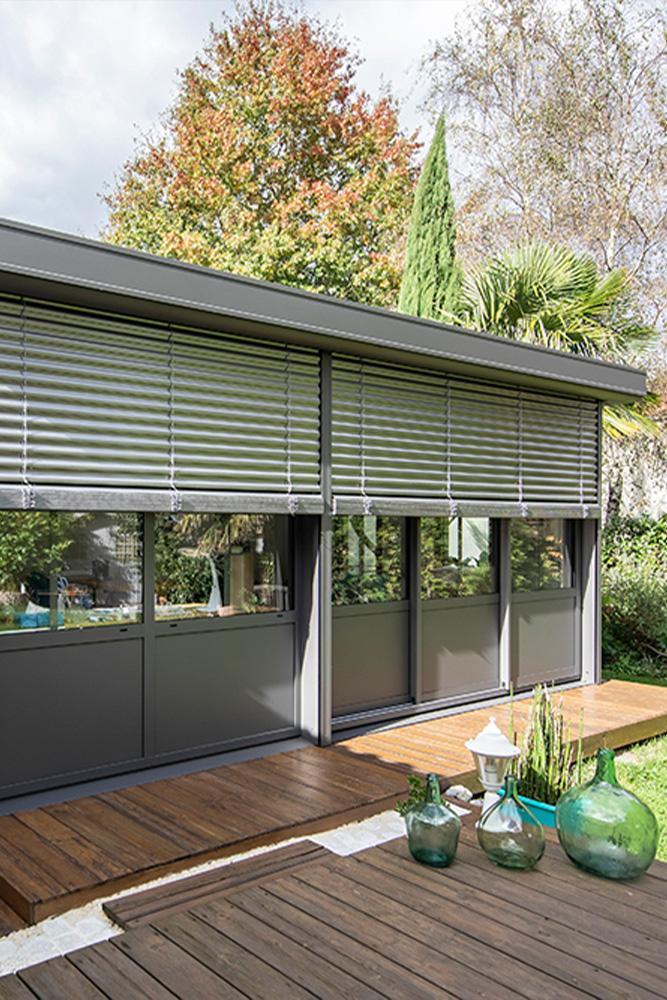
Good to know: the quotation also contains the additional AKENA clauses and guarantees
One of the most crucial aspects of a construction project is the guarantee offered. This includes the ten-year guarantee, an essential protection that applies to defects that could compromise the solidity of the structure or make it unfit for its intended purpose. In addition, there is also the guarantee of perfect completion, which covers the repair of various disorders or defects reported by the client within one year of the completion of the work. These guarantees are essential to secure your investment and ensure your peace of mind!
What type of extension quotation can I receive?
The fixed quotation: a total cost for your project
This type of quotation, which indicates a fixed price for the whole of the work, is generally favoured for projects with well-defined outlines and where the risks of unforeseen events are relatively low. It allows the client to have a clear and precise view of the total cost of the project from the outset, thus facilitating budgeting and financial planning. This system is often proposed in the case of standardised work or for assignments with clearly established requirements that are unlikely to change during the course of the project.
The quotation in separate ‘lots’
Unlike the overall quotation, which provides an overview without detailing specific expenses, this approach separates the main lots by assigning each one its own cost. This allows for a more detailed analysis of expenses, helping to identify precisely where the most significant cost items for the project are located. This method can be particularly useful if you are primarily seeking to optimise your budget by allocating resources in a more efficient and targeted manner.
The cost of materials, an important element in your house enlargement quotation
When planning a home extension, the choice of materials has a direct impact on the total cost of the project. Aluminium and glass, in particular, are popular choices for their modern aesthetic and practical properties, but they also have a significant impact on the budget.
Aluminium, a metal renowned for its durability and lightness, is frequently chosen for the manufacture of window frames and elegant conservatory structures. Despite its higher cost compared to some other metals available on the market, the unique advantages of aluminium, such as minimal maintenance and longevity, can more than compensate for the higher initial investment. Its resistance to the elements and its ability to resist rusting ensure that aluminium structures remain aesthetically pleasing and functional for many years, making it a wise choice for those seeking to combine aesthetics, performance and durability. That's exactly what we're looking for!
On the other hand, glass is chosen for its ability to maximise natural light and provide a smooth visual transition between indoor and outdoor spaces. However, high-performance glass options, such as double glazing or solar control glass, but with better insulation, can increase the cost. Choosing quality materials such as aluminium and glass for a home extension may therefore represent a higher initial cost, but they offer long-term advantages in terms of aesthetics, energy efficiency and low maintenance.
At AKENA, we do our utmost to optimise these costs and deliver the best quality services for our aluminium and glass conservatories and home extensions.
Have your simulation done online, for an enlargement within your budget
At AKENA, we wanted to make the budget estimation process simpler and more interactive than ever before, via our online simulation tool. Whether you are at the very beginning of the process or ready to move on to the next stage, this tool offers you the opportunity to explore the many design choices inherent in your enlargement. From the size and shape of the conservatory to the range of options available, this interactive tool guides you through each step to arrive at a considered estimate.
Choose the shape and roof of your house extension
The first step in your simulation will be to decide on the shape of your enlargement. Depending on your preferences and the style of your house, you could opt for a straight conservatory, which offers modern simplicity and maximises usable space. If you prefer something more traditional, a Victorian structure, with its classic lines and elegant roof, could be the ideal choice, adding a historical touch to your home. For those looking for a more contemporary solution, a flat-roofed home extension can provide a sleek, modern look, while offering the possibility of integrating elements such as skylights for more light. Each design has its own advantages. Which one will be yours?
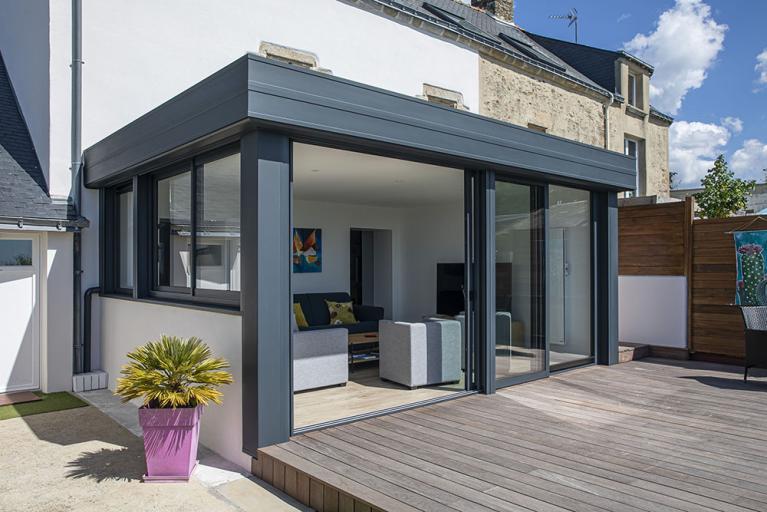
Specify its surface area
Once you have chosen the shape, it is time to decide on the size of your project. You can select the size in square metres that best suits your home and your needs, with examples and practical recommendations to guide you throughout the process.
Determine the use of your enlargement
An extension can serve multiple purposes: a flat-roofed extension for a discreet enlargement of your interior, a four-season conservatory for year-round use, a glass-enclosed room for protected enjoyment of the outdoors, or even a winter garden space for growing your tropical plants. Choose the use that corresponds to your expectations, and your estimate will be adjusted accordingly.
Customise the house extension quotation with your options
Do you want to incorporate roller shutters into your design for added security and better management of sunlight? What about lighting to extend your evenings in your new space? These additional options can add significant comfort to your conservatory, while having an impact on the final cost.
Find all the magazine's articles
You have a project?
Would you like a personalised 3D study and a free quotation? Contact us by clicking below.
AKENA is...
Over 40 years of experience
Founded in 1981 by one man, we now have more than 500 employees dedicated to making your project a success.
Made in France
A historic site and two factories covering more than 25,000 m² in Dompierre-sur-Yon in the Vendée region (85)
Innovative and tailor-made products
At AKENA, we are brimming with new ideas to improve and enhance our products.
The European leader in conservatories, pergolas...
But not only! AKENA also offers a complete range of carports and pool houses.
